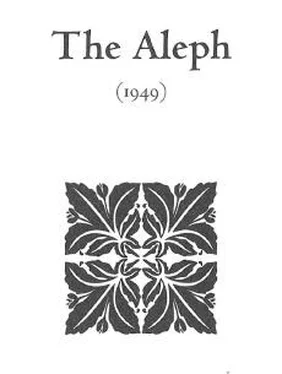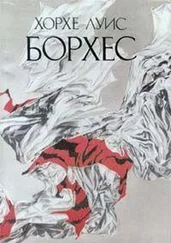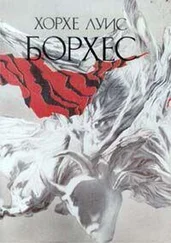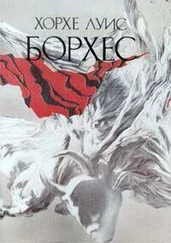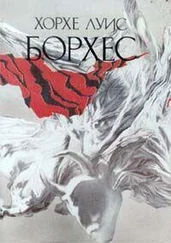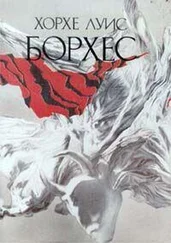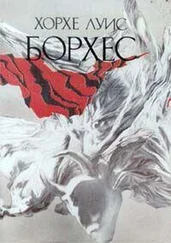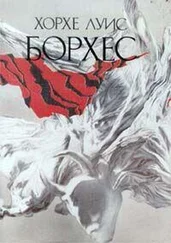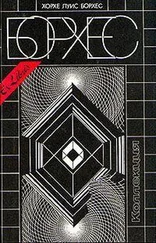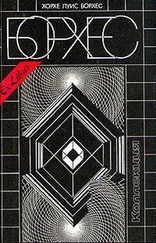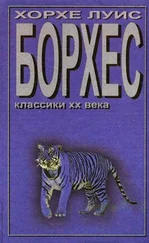Хорхе Борхес - Collected Fictions
Здесь есть возможность читать онлайн «Хорхе Борхес - Collected Fictions» весь текст электронной книги совершенно бесплатно (целиком полную версию без сокращений). В некоторых случаях можно слушать аудио, скачать через торрент в формате fb2 и присутствует краткое содержание. Год выпуска: 1999, ISBN: 1999, Издательство: Penguin (UK), Жанр: Старинная литература, на английском языке. Описание произведения, (предисловие) а так же отзывы посетителей доступны на портале библиотеки ЛибКат.
- Название:Collected Fictions
- Автор:
- Издательство:Penguin (UK)
- Жанр:
- Год:1999
- ISBN:9780140286809
- Рейтинг книги:5 / 5. Голосов: 1
-
Избранное:Добавить в избранное
- Отзывы:
-
Ваша оценка:
- 100
- 1
- 2
- 3
- 4
- 5
Collected Fictions: краткое содержание, описание и аннотация
Предлагаем к чтению аннотацию, описание, краткое содержание или предисловие (зависит от того, что написал сам автор книги «Collected Fictions»). Если вы не нашли необходимую информацию о книге — напишите в комментариях, мы постараемся отыскать её.
Collected Fictions — читать онлайн бесплатно полную книгу (весь текст) целиком
Ниже представлен текст книги, разбитый по страницам. Система сохранения места последней прочитанной страницы, позволяет с удобством читать онлайн бесплатно книгу «Collected Fictions», без необходимости каждый раз заново искать на чём Вы остановились. Поставьте закладку, и сможете в любой момент перейти на страницу, на которой закончили чтение.
Интервал:
Закладка:
"The first term of the series was given me quite by chance. With some friends of mine—among them Daniel Azevedo—I had figured out a way to steal the tetrarch's sapphires. Azevedo, however, double-crossed us; he got drunk on the money we had advanced him and pulled the job a day early. But then he got lost in that huge hotel, and sometime around two o'clock in the morning he burst into Yarmolinsky's room. Yarmolinsky, who suffered from insomnia, was sitting at his typewriter typing. As coincidence would have it, he was making some notes, or writing an article perhaps, on the Name of God; he had just typed the words The first letter of the Name has been written. Azevedo told him to keep quiet; Yarmolinsky put out his hand toward the bell that would wake everyone in the hotel; Azevedo stabbed him once in the chest. The movement was almost reflexive; a half century of violence had taught him that the easiest and safest way is simply to kill.... Ten days later I learned from the Yiddische Zeitung that you were trying to find the key to Yarmolinsky's death among Yarmolinsky's writings. I read A History of the Hasidim; I learned that the reverent fear of speaking the Name of God had been the origin of the doctrine that that Name is omnipotent and occult. I learned that some Hasidim, in the quest for that secret Name, had gone so far as to commit human sacrifice.... I realized that you would conjecture that the Hasidim had sacrificed the rabbi; I set about justifying that conjecture.
"MarceloYarmolinsky died on the night of December third; I chose the third of January for the second 'sacrifice.' Yarmolinsky died in the north; for the second 'sacrifice,' the death should take place in the west. Daniel Azevedo was the necessary victim. He deserved to die; he was a man that acted on impulse and he was a traitor—if he were captured, he could destroy my plan. One of my men stabbed him; in order to link his body to the first one, I wrote The second letter of the Name has been written across the rhombuses of the paint factory.
"The third 'crime' was committed on the third of February. It was, as Treviranus guessed, a mere sham, a simulacrum. I am Gryphius-Ginzberg-Ginsburg; I spent one interminable week (supplemented by a tissue-thin false beard) in that perverse cubicle on the rue de Toulon, until my friends kidnapped me.
Standing on the running board of the coupe, one of them scrawled on a pillar the words that you recall: The last letter of the Name has been written. That sentence revealed that this was a series of three crimes. At least that was how the man in the street interpreted it—but I had repeatedly dropped clues so that you, the reasoning Erik Lönnrot, would realize that there were actually four. One sign in the north, two more in the east and west, demand a fourth sign in the south—after all, the Tetragrammaton, the Name of God, YHVH, consists of four letters; the harlequins and the paint manufacturer's emblem suggest four terms. It was I who underlined that passage in Leusden's book. The passage says that Jews compute the day from sunset to sunset; the passage therefore gives one to understand that the deaths occurred on the fourth of each month. It was I who sent the equilateral triangle to Treviranus. I knew you would add the missing point, the point that makes a perfect rhombus, the point that fixes the place where a precise death awaits you. I have done all this, Erik Lönnrot, planned all this, in order to draw you to the solitudes of Triste-le-Roy."
Lönnrot avoided Scharlach's eyes. He looked at the trees and the sky subdivided into murky red, green, and yellow rhombuses. He felt a chill, and an impersonal, almost anonymous sadness. The night was dark now; from the dusty garden there rose the pointless cry of a bird. For the last time, Lönnrot considered the problem of the symmetrical, periodic murders.
"There are three lines too many in your labyrinth," he said at last. "I know of a Greek labyrinth that is but one straight line. So many philosophers have been lost upon that line that a mere detective might be pardoned if he became lost as well. When you hunt me down in another avatar of our lives, Scharlach, I suggest that you fake (or commit) one crime at A, a second crime at B, eight kilometers from A, then a third crime at C, four kilometers from A and Band halfway between them. Then wait for me at D, two kilometers from A and C, once again halfway between them. Kill me at D, as you are about to kill me at Triste-le-Roy."
"The next time I kill you," Scharlach replied, "I promise you the labyrinth that consists of a single straight line that is invisible and endless."
He stepped back a few steps. Then, very carefully, he fired.
1942
The Secret Miracle
And God caused him to die for an hundred years, and then raised him to life. And God said, "How long hast thou waited?" He said, "I have waited a day or part of a day."Qur'an, 2:261
On the night of March 14, 1939, in an apartment on Prague's Zeltnergasse, Jaromir Hladik, author of the unfinished tragedy The Enemies, a book titled A Vindication of Eternity, and a study of Jakob Boehme's indirect Jewish sources, dreamed of a long game of chess. The game was played not by two individuals, but by two illustrious families; it had been started many centuries in the past. No one could say what the forgotten prize was to be, but it was rumored to be vast, perhaps even infinite. The chess pieces and the chessboard themselves were in a secret tower. Jaromir (in the dream) was the firstborn son of one of the contending families; the clocks chimed the hour of the inescapable game; the dreamer was running across the sand of a desert in the rain, but he could recall neither the figures nor the rules of chess. At that point, Hladik awoke. The din of the rain and the terrible clocks ceased. A rhythmic and unanimous sound, punctuated by the barking of orders, rose from the Zeltnergasse. It was sunrise, and the armored vanguard of the Third Reich was rolling into Prague.
On the nineteenth, the authorities received a report from an informer. That same day, toward dusk, Jaromir Hladik was arrested. He was led to a white, aseptic jail on the opposite bank of the Moldau. He was unable to refute even one of the Gestapo's charges: His mother's family's name was Jaroslavski, he came of Jewish blood, his article on Boehme dealt with a Jewish subject, his was one of the accusing signatures appended to a protest against the Anschluss. In 1928, he had translated the Sefer Yetsirah for Hermann Barsdorf Publishers; that company's effusive catalog had exaggerated (as commercial catalogs do) the translator's renown; the catalog had been perused by Capt. Julius Rothe, one of the officers in whose hands his fate now lay. There is no one who outside his own area of knowledge is not credulous; two or three adjectives in Fraktur were enough to persuade Julius Rothe of Hladik's preeminence, and therefore that he should be put to death— pour encourager les autres. The date was set for March 29, at 9:00a.m. That delay (whose importance the reader will soon discover) was caused by the administrative desire to work impersonally and deliberately, as vegetables do, or planets.
Hladik's first emotion was simple terror. He reflected that he wouldn't have quailed at being hanged, or decapitated, or having his throat slit, but being shot by a firing squad was unbearable. In vain he told himself a thousand times that the pure and universal act of dying was what ought to strike fear, not the concrete circumstances of it, and yet Hladik never wearied of picturing to himself those circumstances.
Absurdly, he tried to foresee every variation. He anticipated the process endlessly, from the sleepless dawn to the mysterious discharge of the rifles. Long before the day that Julius Rothe had set, Hladik died hundreds of deaths—standing in courtyards whose shapes and angles ran the entire gamut of geometry, shot down by soldiers of changing faces and varying numbers who sometimes took aim at him from afar, sometimes from quite near. He faced his imaginary executions with true fear, perhaps with true courage.
Читать дальшеИнтервал:
Закладка:
Похожие книги на «Collected Fictions»
Представляем Вашему вниманию похожие книги на «Collected Fictions» списком для выбора. Мы отобрали схожую по названию и смыслу литературу в надежде предоставить читателям больше вариантов отыскать новые, интересные, ещё непрочитанные произведения.
Обсуждение, отзывы о книге «Collected Fictions» и просто собственные мнения читателей. Оставьте ваши комментарии, напишите, что Вы думаете о произведении, его смысле или главных героях. Укажите что конкретно понравилось, а что нет, и почему Вы так считаете.
